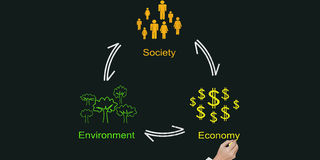It is not just about great beers; TBL is also restoring the environment
Sponsored by Tanzania Breweries Ltd

What you need to know:
- Recycling just one plastic bottle saves enough energy to light a 60-Watt bulb for 3 hours.
- Recycling a tonne of paper is equivalent to saving 17 trees.
- Recycling one glass wine bottle saves the equivalent amount of energy used to power a computer for 25 minutes.
By Millicent Mwololo
Tanzania Breweries Limited (TBL), the manufacturer of your great tasting Kilimanjaro Premium Lager and Safari Larger, has taken measures to build sustainable communities through environmental and social stewardship.
TBL is taking the lead in driving their Environment, Social and Governance (ESG) commitments embedded in their entire operational and sourcing value-chains.
With over 89 years in the industry, TBL is a beer legend, and understands that brewing great beers also depends on a resilient natural environment, and healthy and strong communities of farmers and beer consumers.
The firm has continuously been recycling across its value chain, minimising waste that goes into the landfill, wastewater, and carbon-dioxide emissions, and helping to keep the environment and the air clean. Even more, the brewer has been training its farmers on climate-smart agricultural practices to build their resilience.
Environmental stewardship makes business sense as companies that factor in climate change in their planning tend to post higher profits. According to the latest market report at the Dar es Salaam Stock Exchange (DSE), TBL is the top mover. Its stocks have dominated trading at the DSE over the years.
TBL posted a net profit of Tsh149.658 billion, almost the Tsh150.21 billion net profit that the brewing legend took home in 2019.
For their efforts, the beer maker was in 2020 awarded the Largest Recycler Award by The Recycler, a Dar es Salaam-based firm that provideswaste management and recycling solutions in Tanzania.
In 2020, TBL had recycled over 1,172,074kg of material with The Recycler in Dar es Salaam. The Recycler noted: “Since May 2017, the total recycling is 6,079,980kg of material. This is equivalent to saving 5,113 trees, 19,152 tons of carbon-dioxide, 15,322 cubic metres of landfill space and 24,927,920kWh of electricity.”
According to TBL’s recycling report, in April 2022, the firm managed to recycle 3,380kg of divider boards, 3,680kg of yeast, 2,383kg of woven bags, 13,180kg of wood and pallets, 16,448 plastic bottles and 175, 150 cullet bottles. Also recycled were 20,314 cans, 32,446kg of labels, 80kg of steel drums and 1,400kg of food waste.
Strengthening environmental resilience

Brewing great beers depends on a resilient natural environment, and healthy communities of farmers and beer lovers. On World Environment Day 2022, TBL emerged as one of the winners in environmental conservation activities and initiatives, in a competition that involved other breweries across the city of Dar es Salaam.
In a rare commitment by a brewer to create a better world for all, TBL on this day announced that it had developed four ambitious goals to help build environmental resilience.
Smart agriculture: First is the promotion of smart agriculture among farmers who directly supply to the organisation so that by 2025, they can be skilled in climate-smart agricultural practices, better connected and more financially empowered. To ensure that farmers are directly paid for their supplies, TBL has introduced the first-ever Blockchain economic-identity technology solution in Tanzania. It offers transparency and traceability across the supply chain. The solution is integrated with M-Pesa, allowing farmers to get paid directly through their accounts.
Water stewardship: To deepen water stewardship, the brewer has committed to ensure that 100 percent of its communities in high stress areas will have measurably, improved water availability and quality by 2025.
Climate action: TBL will enhance climate action by ensuring that 100 percent of all its purchased electricity are from renewable sources. The company has committed to also reduce carbon emissions by 25 percent across its value chain by 2025.
Circular packaging: Lastly, TBL has embraced circular packaging, and has committed that 100 percent of its products are packaged in forms that are returnable or largely made from recycled material by 2025.
Managing waste for environmental sustainability
All cardboard and white paper waste go to a local manufacturer that turns them into toilet paper rolls and brown envelopes. Paper products omit serious amounts of methane when placed in a landfill to decay.
Plastic bottles are given to local traders who process them into flakes for export to Eastern Europe. These are used to make new plastic bottles, fibre or even shirts or jackets. Each recycled plastic bottle saves enough energy to power a 60-watt light bulb for three hours.
Cans go to a local company that melt them down into new metal products like steel frames and bars. One recycled can saves enough energy to power a television set for three hours. Aluminum cans can be recycled and ready for use in just six weeks.
Waste glasses are taken by a local manufacturer that crushes and reheats them to make new bottles. Glass is 100 percent recyclable and can be used again and again. Glasses that end up in landfills will never decompose.

Rate of recycling of waste

Recycling rate for April 2022 is 97 percent.
Recycling comparison

Recycling Impact
- Since becoming a recycler in April 2016, TBL has recycled 8,121,310kg of waste. It has recycled the equivalent of 3,603,442 one-litre plastic bottles, 11,922,200 glass wine bottles, and the equivalent of over 1,913,686 cans.
- Recycling of white paper and cardboard has saved 502 trees, while the recycling of plastic has saved the equivalent of 1,257 barrels of oil.
- Recycling has saved the equivalent of 23,887 tonnes of carbon-dioxide.
- Recycling has saved 2,671 cubic metres of landfill space.
- Recycling has saved 9,051,627 litres of water.
Contacts
+255 764 703 930 / +255 767 266 049

